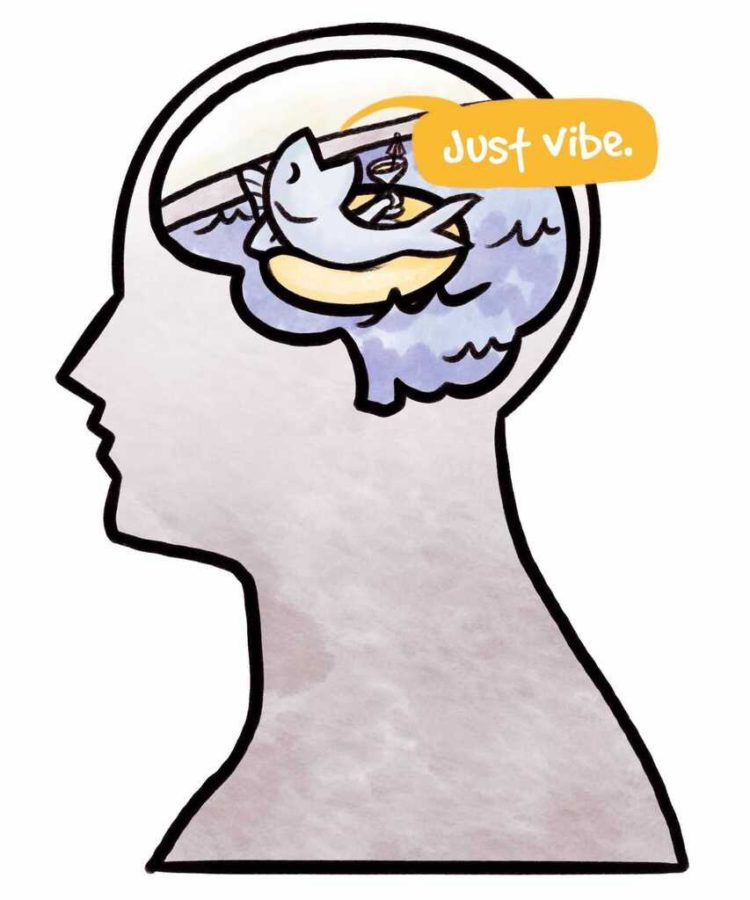Obies Recommend: How To Recover From A Semester In 11 Days
As part of Oberlin’s COVID-19 semester planning, the majority of College second- and third-year students will only have from May 13 to 24 to rest before beginning another full semester. Typically semesters are broken up by at least a month of Winter Term or summer break. With Oberlin’s daunting course loads, shifting break time to just about a week and a half has many worried about impending and prolonged burnout. Fortunately, we’re all in this together, and Obies by nature will find ways to strategically maximize on the 11 precious days we have. Here’s a list of recovery recommendations from fellow Obies.
From College third-year Iesha Phillips: Travel where you can
Phillips is well familiar with recovery strategizing after winning multiple scholarship awards while maintaining a rigorous schedule. In an email to the Review, she recommended that Obies on campus get out and see some Northeast Ohio sites.
“Take a road trip!” Phillips wrote in an email to the Review. “Go have a picnic at the Vermillion River! Visit all six of the Cleveland signs!”
While Oberlin is technically a city, the campus’s rural location can be isolating, especially after a semester of pandemic-caused travel withdrawal. Going to visit Elyria, Lorain, Vermillion, and other towns close to Cleveland can help Obies feel more connected to where we live. That said, traveling in a pandemic should always have an asterisk. The plan should be adjusted as needed to minimize exposure to people in public and protect your friends and family. You also don’t necessarily have to be in an enclosed vehicle to travel — you can skate, bike, or walk!
From College third-year Arman Luczkow: Get some mental space
Luczkow is familiar with how all-absorbing an Oberlin semester can be, and I for one am familiar with how easily my course load can cause me to lose perspective. It’s easy to slip into a mentality where your grades and other Oberlin responsibilities take priority over other parts of your life. Doing something that’s unique to you and outside of Oberlin can be a great way to reconnect with your sense of self-value, breaking away from the context of your academic performance and getting in touch with why you’re here in the first place. For Luczkow, that means spending time at home.
“All I want is the space of my mind to read a bit, cook with my mom, hangout with my cat, and not think about schoolwork,” Luczkow wrote in an email to the Review. “I would also recommend that students don’t look at this break as their only chance to recover for the summer semester.”
Realistically, 11 days isn’t enough time to recuperate after three months of grinding, so it’s likely a good idea to get creative during the summer semester and take more time to rest. Luczkow is making extra space in his summer schedule to account for it.
“I’m planning on reducing my workload significantly over the summer, so that my burnout might slowly fade,” Luczkow said.
From College third-year Oziah Wales: Get outside and reconnect
While it’s a good idea to take a break, you don’t have to shut yourself away the entire time. When the ramp-up to finals sets in, students can fall out of touch with their kinship networks, all while the pandemic has exacerbated social fatigue. It can also be more difficult to get outside during long working hours. Third-year Oziah Wales recommends using the time to break a potentially long period of self-isolation.
“A short break can be a great time to get outside, exercise, and plan events within your friend group,” Wales wrote in an email to the Review. “The weather is finally starting to become beautiful so it’s really a perfect time to do this. Even if you just want to relax, try doing so outside.”
Travelling can be an involved activity, but getting outside and reconnecting with friends is conveniently scalable. For students who unfortunately won’t find a lot of free time during the break to take on a big vacation endeavor, simply seeing your friends and going for a walk can be a really great source of energy. But not as great a source of energy as this next recommendation:
From the author, College third-year Casey Troost: Stop thinking
Thinking. It’s all Obies do, from 7 a.m. to 3 a.m. the next morning. From what I’ve seen, a common cause of prolonged burnout on campus comes from a collective allergy to “zombie time,” or doing as close to nothing as possible to bring brain activity to zero. Fortunately I self-identify as living under a rock, so I give myself plenty of time to go limp and stare blankly at the ceiling, at my walls, or out the window. While this may feel like you’re throwing away productive time, it’s actually too much social media and streaming that’s wasteful. Seriously: Just let your eyes glaze over and pursue the nothingness. You can’t recover from sprinting when you’re jogging every other minute.










